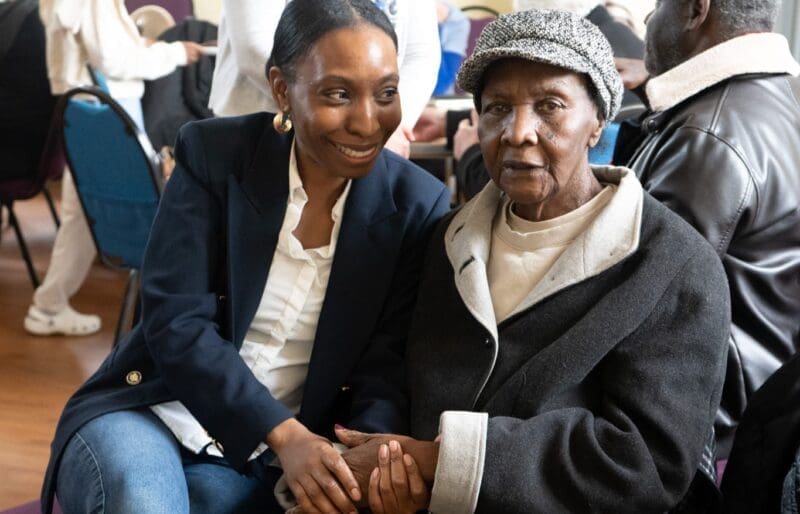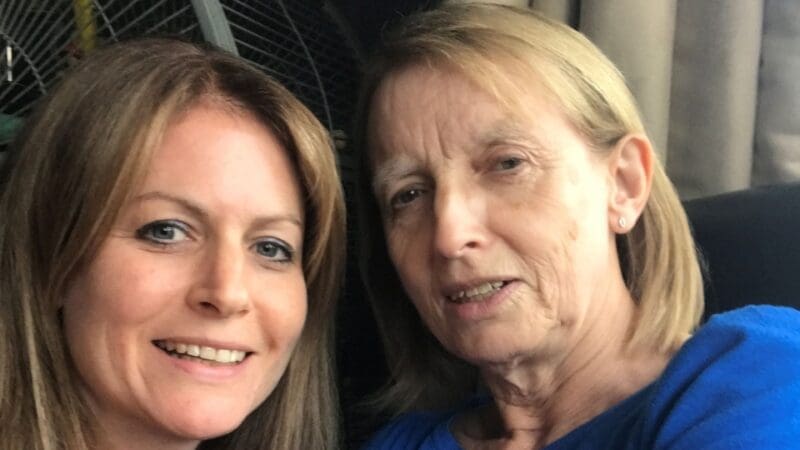
“I couldn’t find a dementia community, so I created one”
When Michaela’s grandmother, Vanda, was diagnosed with vascular dementia, she dedicated herself to creating a place where dementia wasn’t a taboo subject.
Being diagnosed with dementia can be a shock and often triggers difficult emotions. Understanding why you are having these feelings – and how to manage them – can help you come to terms with the diagnosis.
When someone is diagnosed with dementia, it can have a big impact on the emotions of the person themself, their family and friends.
Some people may experience:
How someone responds to a dementia diagnosis – whether they have the diagnosis themselves or someone close to them has been diagnosed – will vary according to their own personality, and other factors such as:
Often, the changes that dementia causes in someone’s behaviour and/or personality will influence how they respond emotionally to their diagnosis.
For example, changes in the brain may affect how they process information – the person may not fully understand their diagnosis, or they may forget that they have been diagnosed and become upset when they are reminded of it.
And changes in the person’s personality may affect their emotions – for example, their feelings may be more extreme, such as intense anger or despair.
Other people’s reactions to the diagnosis may also affect the person’s emotional response.
Comments like, “You’re too young to have dementia,” “There’s nothing wrong with your memory,” or, “You seem fine to me” can be upsetting
Sometimes, family and friends have difficulty accepting the dementia diagnosis and the changes it can cause. This can be especially true if the person’s symptoms do not match up with their perception of how dementia presents, or if the person is younger.
They may be distressed about how the person is changing, and feel grief for the life that they were expecting to have with the person.
They may try to conceal their own emotions for fear of upsetting the person with dementia.
There may be tension between them and the person with the diagnosis and/or other family members about important decisions or coping strategies to use – and this can cause further distress.
A diagnosis of young onset dementia can be especially challenging and cause additional worries, such as whether the person will be able to continue to work, how it will affect the family’s finances, or the impact on their children or teenagers.
Explaining a diagnosis of dementia to children or teenagers can be very difficult, especially if their own parent – rather than a grandparent or other older relative – has been diagnosed.
They may experience a range of emotions, including:
Your GP may be able to suggest specialist support services for young carers, or you could look into local or online support groups.
There are many good books about dementia for children of all ages, and our resources for parents and children may also help.
Adjusting to a dementia diagnosis can be difficult and may take time, but these tips may help the person to come to terms with it and live well with dementia.
Bear in mind that dementia itself can cause changes in a person’s personality, behaviour and ability to cope with challenging situations. This can be frustrating for them and those around them.
If tensions arise or the person is distressed, think to yourself:
While it is important to support the person with dementia with their feelings, it is equally important to acknowledge and respond to your own emotions.
If you and/or the person with dementia are experiencing ongoing feelings of depression or anxiety, it is important not to struggle alone. Please speak to your GP about support they can offer.
Talking therapies can be very helpful, and you can refer yourself for NHS therapies without seeing your doctor, although waiting lists can be long.
You can also speak to our dementia specialist Admiral Nurses for advice and support with the emotional impact of the diagnosis or any other aspect of dementia. Please call our free Dementia Helpline on 0800 888 6678 (Monday-Friday 9am-9pm, Saturday and Sunday 9am-5pm), email helpline@dementiauk.org or you can book a phone or video call appointment with an Admiral Nurse.
Our virtual clinics give you the chance to discuss any questions or concerns with a dementia specialist Admiral Nurse by phone or video call, at a time that suits you.

When Michaela’s grandmother, Vanda, was diagnosed with vascular dementia, she dedicated herself to creating a place where dementia wasn’t a taboo subject.

As a palliative care nurse, Jenny reflects on the importance of empathy during end of life care and how her Admiral Nurse helped her family prepare for her Mum's death.

When Rosie’s mum, Dawnie, was diagnosed with young onset Alzheimer’s disease, her employer ensured caring responsibilities were fully supported.